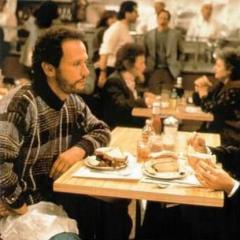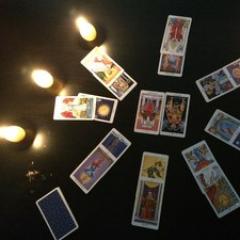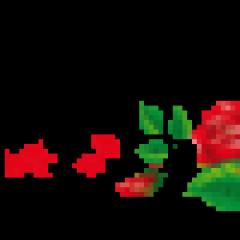A short summary of Albert Camus' story "The Outsider".
Osvita "The Outsider" Camus.
Short term The story “The Outsider” by the famous French writer Albert Camus was published in 1942. Having created a lot of noise in the literary community, it will continue to roil the minds of people.
This is an attempt on the part of one person to show all the falsehood to society.
Head hero
According to the official Meursault, he does not steal anything and does not grieve for other inhabitants of the Algerian city.
The one thing that matters is that you don’t want to be a hypocrite. Therefore, always tell the truth and give as much as you need. For what, more powerfully, and causes the wrath of those who are absent.
Meursault, Marie and Raymond planned to spend the week on the seashore visiting a certain Masson. This initial trip turned into a real tragedy. Mary and three people, walking along the seashore, met two Arabs, one of whom turned out to be the brother of the Kokhan woman Raymond.
After a small verbal battle, the strike began, in which Raymond was hit with a knife.
After the victim was given
medical assistance
, the friends turned to the beach, where they chewed on the Arabs.
Meursault takes the gun from Raymond and goes straight to his back.
With a person there is a feeling of unconsciousness, similar to a sleepy blow or a clouded mind.
Meursault, a fellow French official, a bourgeois from the Algerian suburbs, denies the news of his mother's death.
There are three reasons for this, being unable to use it on your modest wardrobe, but placing it in a nook.
Having given up his two-year leave, Meursault leaves for the funeral that same day.
After a short break with the director of the almshouse, Meursault intends to spend nothing but trouble with his mother.
However, he is inspired to look at the deceased figure, speaks with the guard for a long time, calmly drinks cava with milk and fires, and then falls asleep.
Having woken up, he asked his friends to ask his mother from the corner, and it seemed to him that they had come to judge him.
Having stepped on the wound under the scorching sun, Meursault now finds his mother and turns to Algeria.
After an hour, Meursault and his friends again come to the beach and watch the Arabs themselves behind the high rock.
Raymond gives Meursault a revolver, but there is no reason for welding.
The light of the sky closed and sealed them off.
Friends deprive Meursault of one.
There is a baking speck on this emboss, and the drunken fool is consuming it.
After breaking the head, the court voices the word: in the name of the French people, Meursault is beheaded publicly, on the square.
Meursault begins to talk about those who will succumb to the mechanical overrun.
We cannot cope with the imminence of what is to come.
Nezabar, however, is reconciled by the thought of death, the remains of life are not worth worrying about, and if you already happen to die, then it doesn’t matter if that happens. A priest comes before the stratum to Meursault's cell. It’s easy to try to turn it all the way to God. For Meursault, living forever does not mean any sense, he does not dare to spend an hour on God, which he has lost, so he dumps all the storm that has accumulated on the priest. On the threshold of death, Meursault senses how, from the abyss of the future, a darkness rises to a new one, which his share has taken. Ready to experience everything again, she opens her soul to the joyful joy of the world. "Third Party" or else
"Alien"
also the same translation
"Know-Nothing"
G. A. Adamovich is the debut story of the French writer Albert Camus (1942), a classic illustration of the ideas of existentialism.
The boss at work gives Meursault a promotion with transfers to Paris.
Meursault doesn’t want to: life won’t change for anyone.
Then Marie inquires about the intention of becoming friends with her, but Meursault and not to bother.
This week Marie, Meursault and Raymond go to the sea to visit Masson, Raymond’s friend.
On the bus line they are alerted by a crowd of Arabs, among them the brother of the Kokhan woman Raymond.
After drinking and swimming on the promenade, having again noticed the Arabs, friends already sang that they had been whipped. About an hour later, after healing Raymond’s wound, all three go to the beach again and again run into the same Arabs. Raymond hands Meursault his revolver, lest there be any welding with the Arabs.
Meursault begins to talk about those who will succumb to the mechanical overrun.
We cannot cope with the imminence of what is to come.
Meursault, a fellow French official, a bourgeois from the Algerian suburbs, denies the news of his mother's death.
There are three reasons for this, being unable to use it on your modest wardrobe, but placing it in a nook.
Having given up his two-year leave, Meursault leaves for the funeral that same day.
After a short break with the director of the almshouse, Meursault intends to spend nothing but trouble with his mother.
However, he is inspired to look at the deceased figure, speaks with the guard for a long time, calmly drinks cava with milk and fires, and then falls asleep.
Having woken up, he asked his friends to ask his mother from the corner, and it seemed to him that they had come to judge him.
Having stepped on the wound under the scorching sun, Meursault now finds his mother and turns to Algeria.
After an hour, Meursault and his friends again come to the beach and watch the Arabs themselves behind the high rock.
Raymond gives Meursault a revolver, but there is no reason for welding.
The light of the sky closed and sealed them off.
Friends deprive Meursault of one.
The light of the sky closed and sealed them off.
After breaking the head, the court voices the word: in the name of the French people, Meursault is beheaded publicly, on the square.
Meursault begins to talk about those who will succumb to the mechanical overrun.
Friends deprive Meursault of one.
Meursault, a fellow French official, a bourgeois from the Algerian suburbs, denies the news of his mother's death.
There is a baking speck on this emboss, and the drunken fool is consuming it.
The gun behind the skeleton again marks the Arab who injured Raymond.
Having given up his two-year leave, Meursault leaves for the funeral that same day.
After a short break with the director of the almshouse, Meursault intends to spend nothing but trouble with his mother.
However, he is inspired to look at the deceased figure, speaks with the guard for a long time, calmly drinks cava with milk and fires, and then falls asleep.
Having woken up, he asked his friends to ask his mother from the corner, and it seemed to him that they had come to judge him.
Having stepped on the wound under the scorching sun, Meursault now finds his mother and turns to Algeria.
After an hour, Meursault and his friends again come to the beach and watch the Arabs themselves behind the high rock.
Unable to bear the unbearable specter, Meursault moves ahead, pulls out a revolver and shoots at the Arab, “knocking at the door of misfortune with short blows.”
Meursault has been arrested, how many times will they call for more.
The next day you will realize that a person who has lived even one day can spend at least a hundred lives with a woman - she can tell her fortunes.
Friends deprive Meursault of one.
Step by step, Meursault spends an hour.
After breaking the head, the court voices the word: in the name of the French people, Meursault is beheaded publicly, on the square.
Meursault begins to talk about those who will succumb to the mechanical overrun.
We cannot cope with the imminence of what is to come.
In his dry, provocative lawyer, Meursault, however, calls him an honest worker and a brilliant son, who lost his mother while it was possible, and killed himself in blindness.
Meursault feels the tension of the punishment - an indiscriminate rage and a shame of conscience.
- O. A. Vasilyeva
- Similar creations:
- Albert Camus Outsider Meursault, a noble French official, a bourgeois from the Algerian suburbs, refuses news of the death of his mother.
- Three reasons for this, being unable to afford to spend it on my modest pay,...
- The best reader can be found at an Amsterdam bar called “Mexico City”.
- An expert, a great lawyer, who has a great practice in Paris, after a turning point in his life, he moved there, where no one... Albert Camus’s novel “The Plague” is the pinnacle of the writer’s creativity. He has taken in everything that the author has experienced and comprehended at the rocks of his trials.
- “The Plague” is a chronicle of a tragic fate in Oran, the center...
- World literature is rich in talented writers and philosophers.
- 1. What do you know about Albert Camus?
- Albert Camus is a French writer and existentialist philosopher, author of numerous novels and songs that explore the theme of the absurdity of life.
- Nobel Prize laureate 1957.
- Throughout its thousand-year history, humanity has learned many terrible lessons.
- Eternal values appeared unsettled, mankind was at odds with yogaism and addictions, nature was at odds with the demise of the apocalypse.
- Only the 20th century brought justice to humanity...
- The famous French writer and philosopher Albert Camus appreciates that people who rebel are people who stand for everything, even “not”. Protesting against the current order of promotions, people in the same...
- "THE SIDE".
- The story was published in 1942.
.
The main character of the story is the former serviceman Meursault, a “romantic-existentialist.” You don’t want to be like other people, you don’t want to live a life “behind fashion catalogues.”


